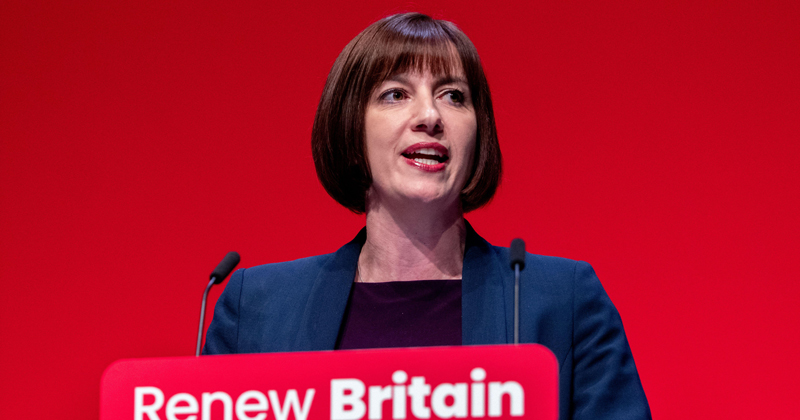Teacher pay should rise by 6.5 per cent over the next three years, government has said in its evidence to the School Teachers’ Review Body.
And the Department for Education “expects that most schools will need to implement plans to realise and sustain better value from existing spend in addition to the funding being provided through the core schools’ budget to deliver the pay awards”.
Earlier this year, education secretary Bridget Phillipson asked the STRB to make formal recommendations for pay awards for the 2026-27 and 2027-28 academic years, “as well as an indicative pay award for the 2028-29 academic year”.
The Department for Education has now published its evidence to the STRB.
In it, the DfE said there were “positive signs that the government’s pay strategy is starting to deliver improvements to the recruitment and retention of teachers.
“To continue to build on these improvements, the department’s view is that a 6.5 per cent pay award over 2026-27, 2027-28 and 2028-29 would be appropriate, with the level of awards weighted towards the latter part of the remit.
“This would support schools to manage the challenging affordability position in FY 2026-27, which has resulted from the significant pay uplift in AY 2025/26, preceded by a substantial pay uplift in 2024/25.
“A weighting towards higher awards in 2027-28 and 2028-29 would give schools a longer timeframe to plan for changes to their operations, provisions or staffing.”
Union warns of ‘real-terms cut’
The recommendation is likely to put the government on a fresh collision course with unions.

National Education Union general secretary Daniel Kebede said: “A 6.5 per cent pay award spread over three years will amount to a real-terms pay cut for teachers.
“The last Labour government made education its top priority – ‘education, education, education’. This Labour government, however, is failing to deliver on its promises.”
He added that “instead of 6,500 more teachers, we have botched Ofsted reforms, declining school funding, and now a pay recommendation that will do nothing to address the continued crisis in retention.
“If this government were truly serious about education, it would invest in its workforce – not make the living standards of dedicated teachers worse. Austerity Labour is paving the way for a Reform government. A government that will take our public services from crisis to collapse.”
‘More cuts in schools’
But in its evidence, the DfE said the proposed awards “would maintain the competitiveness of teacher pay and provide a real terms improvement over the parliament.
“A 6.5 per cent award over the next three years, when combined with the increases from the last two pay rounds, would mean teacher pay rising by nearly 17 per cent across the parliament.
“Using the Office for Budget Responsibility’s (OBR) forecasts for the Consumer Price Index (CPI), this would be a real terms increase of almost 4.5 per cent over the five years.”
It comes after teachers received a 6.5 per cent pay rise in 2022, a 5.5 per cent rise in 2023 and a 4 per cent rise this September.
Matt Wrack, general secretary of the NASUWT teachers’ union, said the proposal “fails to address the thousands of pounds in pay that teachers have lost over the past decade due to years of real-terms pay cuts.
“In addition, the government intends to once again ask schools to fund part of the pay awards from existing budgets – that means more cuts in schools.”
Earnings growth ‘forecast to slow’
The DfE also argued that “considering the projected trajectory of average earnings growth across the wider economy, it is appropriate that pay awards over the next three years are lower than those in the past few years.
“Measures of average wage growth have historically been higher than median pay settlements, as they are affected by compositional changes in the labour force and factors such as changes to working hours.”
They added that “average earnings growth is forecast to slow further over the coming months, and into next year.
“The OBR expects average earnings growth to average around 2 per cent in the three years from 2026-27 to 2028-29, down from 3.7 per cent in 2025-26.”
Leaders raise concerns
Pepe Di’Iasio, general secretary of the Association of School and College Leaders, said the suggested award was “inadequate”.
“The DfE’s recognition that most schools would need to find savings from existing budgets to deliver even this meagre amount reflects the insufficiency of the government’s education funding plans.
“Without additional funding, schools would have to implement further cuts which will have an impact on educational provision.”
And Paul Whiteman, general secretary of the National Association of Head Teachers, said the suggested rise “would be a real-terms pay cut for teachers and leaders if inflation and average earnings across the wider economy rise as predicted.
“Great schools rely on great teachers and leaders. All the government’s ambitions – from improving literacy, to tackling child poverty, to SEND inclusion – none of them can be realised without skilled experienced professionals showing up for pupils every day.”
A DfE spokesperson said they had “worked hard to rebuild the relationship with the teaching profession, leading to major improvements in recruitment and retention.
“To help schools plan their budgets and maximise every pound spent, we are proposing a multi-year pay award.
“We will also continue to support schools get the best value for money on areas like energy, recruitment, and banking, so every penny is invested in delivering opportunities for young people.”















Your thoughts